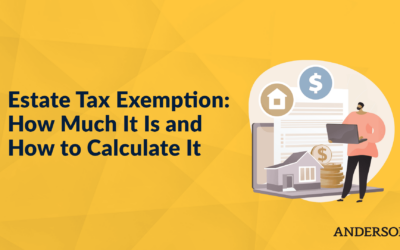Updated October 13, 2021
An inheritance is a bittersweet gift. Though it can provide a much-appreciated financial windfall, it comes at the price of a loved one. In most cases, the deceased individual who has bequeathed this inheritance will want it to improve the lives of those he or she left behind.
There are a number of things you can do with the inheritance that will perpetuate the memory of the deceased in a positive way—along with helping you meet your financial goals.
10 Things to Do With an Inheritance
- Invest It
- Give Back
- Pay off Debt
- Enjoy Some of It
- Pay off Your Home
- Plan for Retirement
- Start a College Fund
- Get Help Managing It
- Don’t Let It Change Your Life
- Share It With Family – Within Limits
It’s important to realize that creating a will helps make sure your intended inheritance gets into the right hands. In most states, you will need to sign your will in the presence of two adult witnesses who have no vested interest in your inheritance. These witnesses may initial each page of the will or sign an addendum stating that they watched the testator sign the will.
When a person dies with a will in place, they are said to die testate. When they die without a will, they are said to die intestate—and dying intestate will put your estate (that is, the assets you leave behind) through a process called probate.
Initiating a conversation with elderly loved ones about the importance of leaving behind a clear will can be a difficult conversation. Each person will have to decide what makes sense for them, but initiating this conversation may prevent intended beneficiaries from having to go through extra grief and stress.
Probate can be a lengthy process, and attorney’s fees can eat away at the inheritance. If dissatisfied relatives want to assert a claim on the assets of the deceased, they can further drag out the probate process. This, of course, adds to all the stress and sadness of dealing with a loved one’s demise.
But if the deceased has created a satisfactory will with clear directives, beneficiaries listed in the will may suddenly find themselves with a sizable sum of assets. It’s then up to them to use this money wisely.
10 Things to Do With an Inheritance
Invest It
Investing an inheritance could take several forms, and beneficiaries could mix and match according to their means to build some ongoing wealth and residual income. You could parcel the entire sum out into different investment accounts, set it on autopilot until your retirement and let the power of compound interest multiply the initial amount. If you know how to invest in real estate, or you know someone with experience who can help you, you might consider purchasing a rental property or two. You could also use a portion of your inheritance to invest in a startup or open a franchise. Be forewarned, however, that if you spread the word around that you’ve inherited money you may get several solicitations from less than scrupulous individuals who need money for risky schemes. Remember to invest your wealth wisely and seek counsel from a lawyer or experienced, impartial party before making any moves.
Give Back
If there was a particular cause or organization for which the deceased felt some affinity, you might consider propitiating their memory with a special gift—which in most cases, will also be tax deductible. This could be a charity, religious organization, or recreation center looking for contributions or donations to expand their work. Many organizations have naming opportunities so that the name of the deceased can be associated with this act of kindness. If no such cause exists, you could use part of the inheritance to start a trust for charitable works or a scholarship in their name. Remember to account for your other financial goals when determining how much to donate.
Pay off Debt
Debt comes in many forms: big and small, high interest and low interest. In most cases, it will benefit you the most to pay off the debt with the highest interest rates. For most consumers, this is credit card debt. If you have a sizable amount of credit card debt and your income will preclude you from having it waived in bankruptcy court, you might consider using some of the inheritance to clear your outstanding balances, or pay off some of them for the purpose of consolidating them into a lower payment. Other debts might include student loans, car loans, and anything else outstanding, the payments of which add to your monthly expenses. You will find that once these debts are cleared up, it’s not only easier to build your wealth with monthly contributions to your IRA, but that a huge, stress-inducing pressure will leave you breathing easier.
Enjoy Some of It
The key word here might be “some.” While you won’t want to blow all of your inheritance on a series of exotic vacations, it’s okay to use some of it to achieve one of your own personal goals. This might include obtaining a higher degree or certification, buying a motorcycle, or taking a special vacation. Remember that the deceased would most likely want you to enjoy life responsibly. This tip is most practically utilized once you have checked some other points off your to-do list (such as paying down debt). For many families, creating an emergency fund or savings account comes at the expense of taking an annual vacation or pursuing other goals. The extra money from an inheritance can provide an opportunity to check some items off the proverbial bucket list without dipping into your emergency fund, savings account, or Roth IRA.
Plan for retirement
The average American has a woefully low-funded retirement account. Receiving an inheritance can be your heretofore neglected opportunity to jumpstart a new IRA or boost the amount in an existing IRA. With taxable income reduced by the income tax rate, the rise of inflation, and stagnant wages, it can be hard for the average American family to put aside money from their income toward retirement. But an inheritance put in the hands of a trusted financial planner or deposited into the right IRA can form the initial stages of what will eventually snowball into a sizable nest egg. In light of the deceased’s passing, it may only be fitting to consider your own advanced planning and preparations for the years when you can no longer work.
Pay off Your Home
For most Americans, the largest debt they carry is their mortgage. An outstanding mortgage is also something that many Americans carry into retirement, which can significantly impact their ability to enjoy their golden years with financial ease. At the same time, some beneficiaries will receive an inheritance large enough to pay down the remaining amount they owe on their home. Owning your home outright can provide you with a significant amount of financial independence, increase your net worth, and reduce the monthly stress of having to pay your mortgage.
Start a College Fund
Saving is difficult for most Americans, even when it means contributing to their retirement accounts or emergency fund. Saving up money to pay for a child’s college tuition can become an additional source of stress. But if an inheritance comes your way, it can provide an excellent starting amount for a college fund. Invested in the right mutual fund, this amount can grow into a six-figure sum by the time you need to pay for one or more of your children to attend a four-year institution. Helping you children graduate debt-free will certainly give them an advantage as they start their journey into adulthood and would certainly be in the spirit of using a gift from the deceased to help family.
Get Help Managing It
Inheritance money issued as a lump-sum distribution can become diminished by inheritance taxes. Inheritance tax rates do vary by state (although the federal estate tax does not) but no matter where you live, working with a certified financial planner or an estate planning attorney can help minimize losses to inheritance tax. If the health insurance policy of the deceased carried a death benefit, or if they had life insurance, there may be more lump sum payouts that would benefit from the stewardship of a financial advisor who specializes in estate planning. Moreover, if a beneficiary like a spouse inherits real property and doesn’t want to live there, an estate planning attorney with a good working knowledge of estate taxes can help develop a strategy and minimize losses to capital gains. They can also help reduce other capital gains taxes that might be triggered by liquidating other types of assets belonging to the deceased.
Don’t Let It Change Your Life
It’s easy for people who have suddenly obtained a large inheritance to change the way they live their life. They may quit their job, move to a different place, and start spending more just because they came into a lump sum of money. While this type of behavior is reckless and shortsighted any time, it can be especially dangerous in the emotional aftermath of losing a loved one, when beneficiaries might be more inclined to make poor choices. Consult with a lawyer or financial planner who can help you make the right choices with your money and avoid making any drastic changes that might provide a further disturbance in delicate and often emotional times.
Share It With Family – Within Limits
There are two sides to the coinage of helping family. On the one hand, it is certainly altruistic and noble to use the inheritance to help family members in need. These can be short-term gifts like paying for a niece or nephew to have a birthday party, or gifts with a long-term impact like bailing a relative out of foreclosure, or helping a surviving spouse with long-term care. This can be especially true if there are certain family members who had a less-than-perfect relationship with the decedent, who consequently did not leave them any inheritance. But remember to use discretion and avoid overspending. Also, if word gets out that you’ve come into a sizable inheritance, you may find that relatives start contacting you for money—upsetting as it may seem. Learning how to develop good boundaries around giving money to relatives is a good skill at any time but can prove especially important following the death of a family member.
10 Things to Do With an Inheritance
Receiving an inheritance can produce some mixed feelings. One might feel a sense of relief as financial burdens are alleviated or new doors open with such a sizable gift. At the same time, one might feel sadness when considering the cost of this inheritance. The emotional turmoil that’s often part of dealing with the death of a loved one—whether they’ve left behind a clear directive or their assets have to go through probate—is a good reason why it’s important to know what to do with inheritance money, and how to manage it properly. Keep in mind that a well-managed inheritance can bring you closer to your own long-term financial goals, honor the memory of the deceased, and help continue to care for the family after their departure.
As always, take advantage of our free educational content and every other Tuesday we have Toby’s Tax Tuesday, a great educational series. Our Structure Implementation Series answers your questions about how to structure your business entities to protect you and your assets.
Additional Resources:
- Claim your FREE Strategy Session, and learn how Anderson Advisors can protect your assets.
- Join our next Tax & Asset Protection event to learn more advanced tax minimization & entity structuring strategies
- For all things investing, check out the Infinity Investing YouTube channel
- Subscribe to our YouTube channel to make sure you never miss the latest strategies & updates
Bonus Video
3 Steps to Create an Invisible Investor Strategy
The greatest mistake that people make when it comes to asset protection for real estate is not understanding the risks that are waiting out there for them. This eBook reveals the structure you should follow to ensure your hard earned money is protected from frivolous lawsuits and costly tax mistakes.















